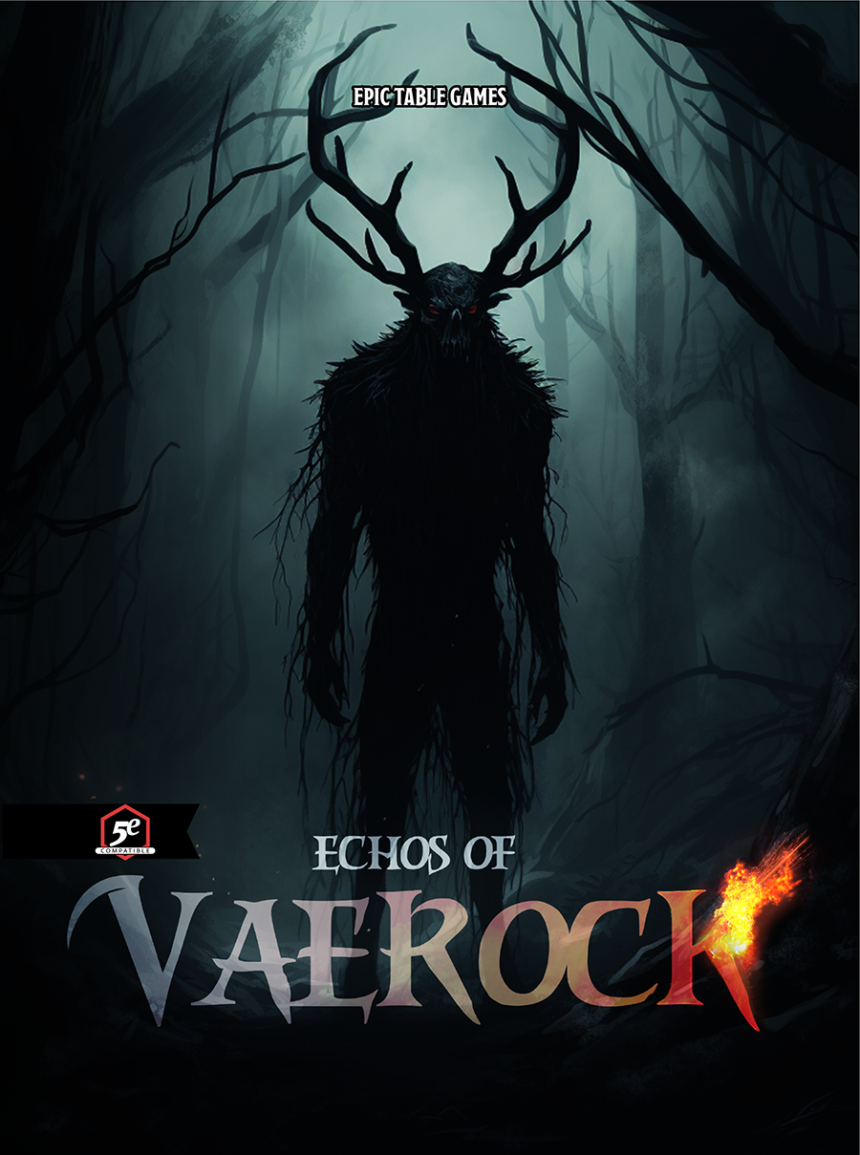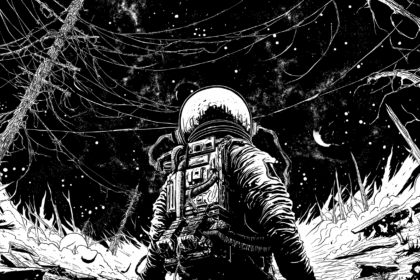Hey there all you RPG fans, and welcome back to the Epic Table! Today’s topic is some GM advice that’s near and dear to my heart.
Every TTRPG gamer should read Apocalypse World 2E at least once. There is a ton of great advice in there, both for playing characters and for running games. In fact, there are a multitude of reasons for this, which I will likely cover in a future post at some point. Most relevant to this post is the concept of being a fan of your characters. When running a game, you should be a fan of your characters without being a doormat for them.
Fandom Defined
One might think the best way to start this article is to nail down what “being a fan” means. But the truth is that what being a fan is is the whole discussion. It’s very easy to pull out, say, Dictionary.com and parrot back that a fan is “an enthusiastic devotee, follower, or admirer of a sport, pastime, celebrity, etc.” But that definition doesn’t encompass the truly wide range of feelings being a fan can engender in a person.
Still, let’s take this definition at face value for a moment. What are the four key elements of it?
- Enthusiastic: This is the overarching theme here, and it’s an important one. To be a fan, we have to be giving it our full effort. We have to be excited to see what happens next. We have to invest in the characters. This isn’t always easy! Sometimes we secretly think a PC is lame. But if we’re going to create a fun and engaging game for that character’s player, we have to find something to be enthusiastic about. That’s work. But it’s work that has a huge payoff.
- Devotee: One of the modes we need to consider is devotion to a character. We need to stick with the character regardless of what happens to them. When they change, we need to say, “How does this change make them more interesting?” Again, that’s work. Again, it has a huge payoff.
- Follower: This is the most basic element–we have to care what the characters are actually doing. This is probably the part that’s easiest to grasp intuitively, because many of us have had bad experiences with it in the past. If Elminster, Drizzt, Strahd, or your precious cinnamon roll of a GM character is taking up all the screen time, you’re not following the characters–you’re following those folks instead. Think about following on social media: being a fan means being excited to get updates about what the account you’re following is doing.
- Admirer: This, on the other hand, is maybe the hardest part intuitively. How do we admire Sir Ebony Edge’Lord Darknezz XIII, who thought the Darker and Edgier TVTropes example list was a how-to guide? How do we admire Jane the Fighter, who has all of the personality and uniqueness of her greatclub? How do we admire Lord Cedric Puppykicker, whose utterly cartoonish brand of evil reflects all the maturity and consideration of a two-year-old with a sunburn? Once again, that’s work. And just like the last two times, that’s work that pays off.
The common thread here is finding the thing the character does well, giving them opportunities to do it, and being excited to see them do it. Sir Ebony works off being the coldest character in the room–find times when their ice-cold eyes unnerve and frighten people. Jane may be pretty plain storywise, but boy does she pack a wallop: set up some measly skeletons and watch her knock them down with ease. And yes, sometimes you should–subject to the safety tools set up by your group–give Lord Cedric a metaphorical puppy to kick.
This goes along with some invaluable advice from the AW2E book itself:
The worst way there is to make a character’s life more interesting is to take away the things that made the character cool to begin with. The [gun-focused] gunlugger’s guns, but also the gunlugger’s collection of ancient photographs—what makes the character match our expectations and also what makes the character rise above them. Don’t take those away.
In case it’s not clear for those in the back, I’m arguing that the correct time to take away a wizard’s spellbook or to make a paladin lose their powers is never. (Well, okay, with the caveat that this applies to systems where class powers are fundamental to the character like D&D or Pathfinder.) Being a fan of a character means wanting to watch them succeed based on who they are. Trying to be a fan of a character with all their attributes stripped away is almost like being a fan of another character altogether.
So why not let the characters just have everything they want, then? Because that’s not being a fan either.
Keeping it Close
Take the following two videos. Why is this moment so iconic that it’s been referenced in practically every movie featuring a character with a hat, but this moment so lame that it’s still made fun of on the internet today? It’s because in Indy’s case, the escape is a narrow thing–with just enough extra room for a little moment of showing off. In Geordi’s case, it was almost completely unnecessary and not close at all.
Making things close is hugely important to the psychology of gaming. On one hand, there’s the well-known principle that close losses increase our desire to continue playing–the “near miss effect,” which has been researched for almost forty years. On the other, studies have also revealed that when comparing the happiness that comes from two wins with equal rewards, we’re more happy about the win that was harder to get.
This hugely influences gaming. Think about the obsession about encounter balance, or consider the idea of only rolling for “uncertain” outcomes. Think about the thrill that comes from succeeding “only on a 20” or the adrenaline of failing “only on a 1.” It’s why failing a DC 20 check by rolling a 19 feels different than failing it by rolling a 13. It’s why of all the DC 20 rolls you’ve ever made, you remember more of the ones where you rolled 20 or 19.
(This is also, by the way, why you should absolutely never set foot in a casino without a very clear knowledge of what you’re doing.)
So how does this apply to being a fan? We as fans want our favorites to succeed… but we want to see them work for it. We want to catch our breath as they jump over the cliff and wonder if they’ll make it. We don’t want everything to come easily to them. We still want them to win at the end of the day, but we want them to have struggled for it.
And sometimes, we want them to suffer.
Pleasure in Pathos
There’s a kind of perverse pleasure in watching our favorites be absolutely wretched. It’s the “struggle” part of that last taken to the extreme: we want to watch how the characters deal with absolutely wretched circumstances. Romeo and Juliet is only an interesting play because everyone is against the lovers. (Well, that and the sword fights. Pretty much anything can be improved with a sword fight.) There are two many fandoms to count that have made a game out of, “What horrible thing is going to happen to [character that has many horrible things happen to them] next?”
The important thing to remember about this is to be a fan of the character themselves. That means that it’s their attributes that get them into this trouble (which is what makes it interesting) and their attributes are also what get them out of this trouble (which is what makes it authentic to them). If the trouble strips away the character, or if they can only get out of it by acting in a completely out-of-character fashion, that’s not being a fan of a character.
Unless, of course, they don’t get out of it.
Warning: Spoilers for the 2019 movie Avengers Endgame in the next section. (It’s 2023, I’m assuming you know about this, but hey, it’s always someone’s first day on the internet.)
A Fan of Death
How do you be a fan of a character while killing them at the same time? By keeping it in character.
Now, a small caveat: this section doesn’t really apply to super old school renaissance-type games where, to borrow an expression from somewhere I don’t remember, “you don’t name your Fighter until level 3.” For some games, death is cheap–but those are ones where who the characters are is less important anyway. But for the rest, at face value it seems difficult to be a fan of characters while killing them. Isn’t that the ultimate failure?
Not if you remember the core of being a fan: being enthusiastic about who they are.
One of the most iconic moments in Avengers Endgame–in all of Marvel’s Phase 1, really–is Tony Stark sacrificing himself to use the Infinity Stones. “I am inevitable,” says Thanos… “And I,” says Tony Stark, “am Iron Man.” Except that line almost wasn’t in the movie. According to audio sent to Slashfilm, originally Tony Stark wasn’t going to say anything. But that didn’t work with the quippiest character in the franchise to that point–so a line was added and a major movie moment born. And fans loved it.
This is how you can be a fan of the character while still killing them: let them be themselves the most as they die. Sir Ebony should be too cool for death even until the end. Jane the Fighter should go down surrounded by the corpses of her enemies, still clutching her greatclub. And Sir Cedric should get one last scathing remark at the expense of puppies. It’s doubly as powerful if their deaths mean something, too–if their dying effort is what pushes the battle past the tipping point. (Remember: close wins!)
Fanned Out
Being a fan of a character isn’t giving them everything they want. Sometimes, it’s making them suffer. Sometimes, it’s making them die. But all the time, it’s about letting the character’s most essential elements shine through–letting them be cool for the reasons they’re cool, and enjoying that when it happens. And don’t forget: you have to commit to it. You have to put the full force of your GM powers behind finding what makes the character cool and not just letting it happen, but encouraging and fostering it.
One last piece of advice: if you really, truly cannot find a way to be a fan of a character? Ask the player why they are. Because if there’s one thing that’s true, it’s that fans love to talk about the things they’re fans of. Hopefully, that’ll include your GM, too.
The contents of this post are © 2024 H. Tucker Cobey. All rights reserved.







